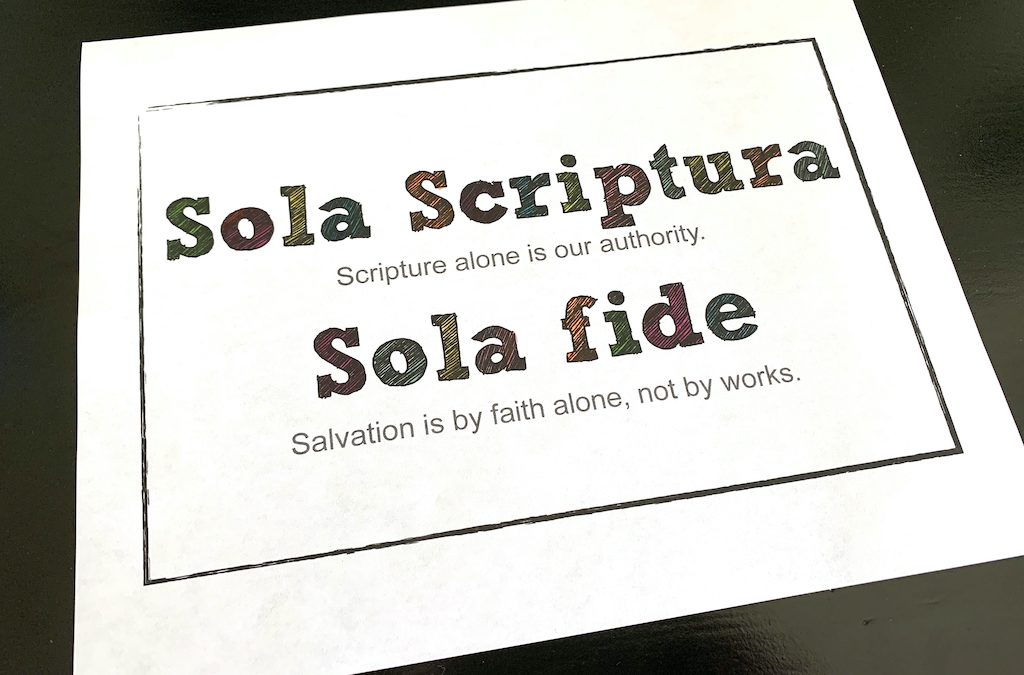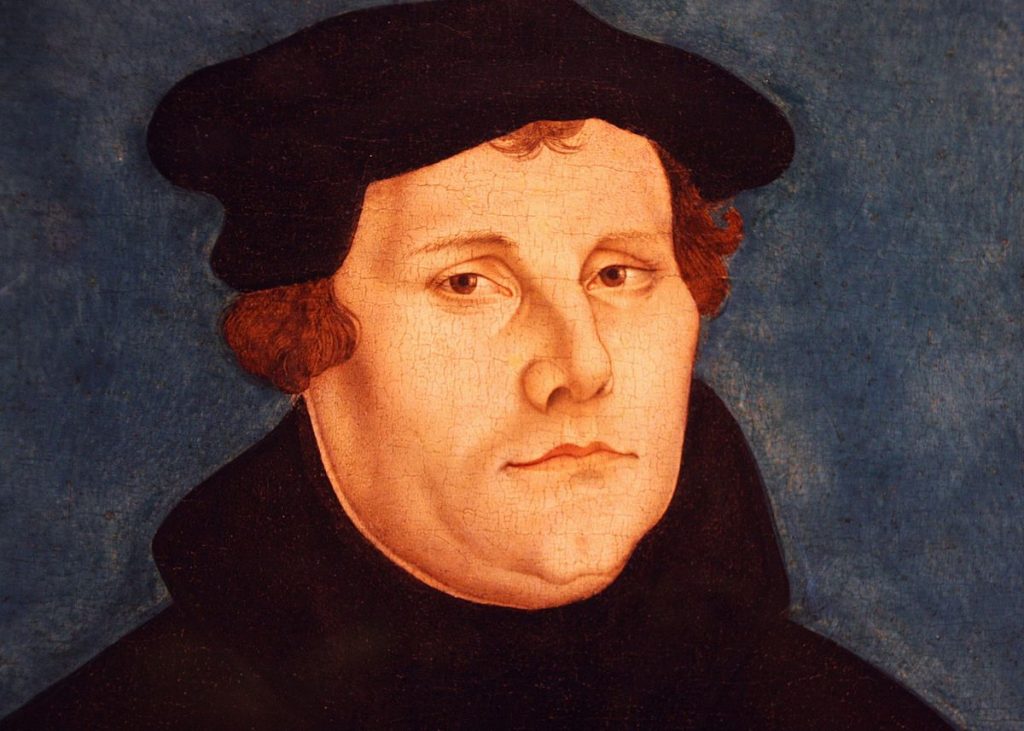On October 31st, 1517, a monk and professor of theology named Martin Luther nailed his 95 Theses to the door of a church in Wittenberg, Germany.
{image courtesy of public domain}
{image courtesy Kendra & Tanner Clarke}
The 95 theses were Luther’s complaints against practices of the Catholic Church and areas in which the church had strayed from the Bible and its intent. As a result, he felt the church had actually become a barrier for people to know and understand God, rather than a conduit for leading people to a closer relationship with God. This single act of defiance sparked the flame of the Protestant Reformation, and set in motion tremendous reform within the Church.
Luther called into question some of the basic tenets of the Catholic Church.
For example, Luther argued against the practice of indulgences, good works which often involved financial donations or payments to the church. In return, popes could grant forgiveness of sin or cancel the penance (or punishment) for their sin. Luther deplored this practice of entangling God’s free gift of grace in a complex system of good works, implying that rich people could buy their way into heaven.
In addition, the Bible was only available in Latin, which the common person couldn’t read or understand. This caused people to be dependent on the leaders of the church, leaders with which Luther had become disillusioned due to the immorality and corruption he witnessed among the Catholic priests. Luther’s personal experience with the Bible left him with the conviction that if people did not have the ability to read the Bible themselves, then they would also lack direct access to God, or the ability to have a PERSONAL relationship with God. Because of this strongly held belief, Luther was the first person to translate the Bible into a language of the people. Other translations followed, and this is why you can read the Bible yourself today in your own language.
Although 500 years ago Germany was the birthplace of the Protestant Reformation, today the spiritual climate is very different. Germany is considered a “post-Christian” country. While culturally about 33% of Germans identify as Protestant and 33% as Catholic, only about 2% of Germans believe in the Gospel and have personally trusted in Jesus for salvation. Almost every German city or town has a church or cathedral that is in the city-center, but most are either empty or have only a few that gather.
In addition, as Germany has grown since the Protestant Reformation, so has the population of people from other countries. Like most of Europe, Germany is an international hub and very culturally diverse. This increase in diversity has also introduced influence from other religions. For example, one of the largest mosques (Muslim worship building) in Europe is found in Cologne, Germany. What this means? – grassroots mission efforts in Germany can reach this post-modern culture, but they can also provide an opportunity for reaching Muslims in the same country!
Time inevitably brings change. In the case of German history, the 500 years that has passed since the days of Martin Luther have brought both good and bad changes:
THE GOOD:
- Germany was the birthplace for the Protestant Reformation, a movement that brought forth great reform in society and in the church.
- Martin Luther’s work in translating the Bible into the common man’s language was the beginning of the path forward for the Biblical translations that are available today
- Martin Luther brought to light two key Biblical principles that are still valued as primary redemptive theology:
- Scripture alone is our authority: sola scriptura
- Salvation is by faith, not by works: sola fide
In remembrance of Martin Luther’s teachings, download and print the following document for students.
As students color in the two Latin terms on this page, encourage them to think about and memorize these important Biblical points.
THE BAD:
- Germany, and Europe’s as a whole, has evolved into a post-Christian culture. This attitude that says, “we’ve been there and done that and no longer think Christianity is relevant to our lives” is a sad and empty transition.
Please pray for the people of Germany. Prayercast is an excellent resource with a beautiful and powerful prayer for the German nation.
https://www.prayercast.com/germany.html
Excellent Prayer Points from their website:
- Pray for a second reformation to make the Church culturally relevant and Biblically sound.
- Pray for a spiritual awakening among the predominantly lost youth.
- Pray for wisdom, compassion, and provision as the nation receives and assimilates historic numbers of migrants.




